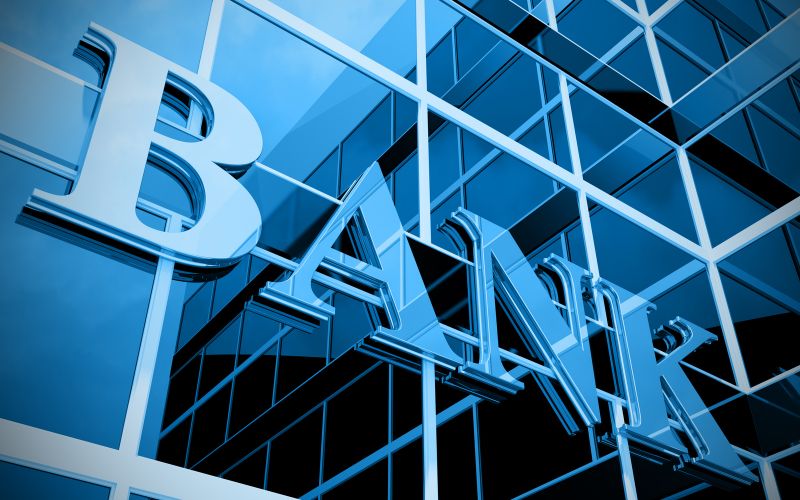Are you ready to take the leap and become a franchisee, but can’t quite figure out how to finance it? Maybe it’s time to consider franchise financing options. Franchise financing can be obtained through a business loan to support the establishment or expansion of a franchise.
Launching a business is not a straightforward journey for entrepreneurs. Being aware of the financial needs of your franchise, such as start-up and ongoing costs, are integral to its success.
Besides fees and royalties associated with being part of the franchise system, additional franchise fees include outlay on staffing wages, inventory purchases, equipment rentals, or purchases along with promotional strategies.
But don’t let this challenge stand in your way! With several franchise loan options available, you too can join the ranks of entrepreneurs by owning and operating your own successful business.
Whether it’s through franchisor financing programs, traditional bank loans, or SBA lending, there is something out there for every aspiring franchisee. So if you’re ready to take the plunge and become a franchise owner, read on to learn more about these three major franchise financing options!
1. Franchisor Financing Programs

Some franchise systems offer franchise financing to qualified franchisees and potential franchise owners, eliminating the need for a traditional bank or SBA loan. These franchise-specific financing programs are typically offered by large franchise networks that have established relationships with banks or investors. It offers individuals the opportunity to secure the necessary funds to finance a franchise, empowering them to pursue their entrepreneurial dreams.
To assist with the cost to purchase a franchise, franchisors often offer access to discounted or even no-interest business loans. If you are seeking franchisor financing programs for your franchise fee, there are several highlighted factors to abide by. Here are some things to consider:
Eligibility requirements
Different franchisor financing programs have different eligibility requirements, such as a minimum credit score, a certain level of business experience, or a specific net worth.
Meeting the eligibility criteria is essential to qualify for franchise financing, providing individuals with the opportunity to secure the necessary funds to pursue their franchise aspirations. Make sure you understand the eligibility criteria before applying.
Interest rates and fees: Franchisor financing programs may charge interest rates and fees that vary depending on the program. Be sure to compare rates and fees across programs to find the most affordable option.
Repayment terms
The repayment terms of franchisor financing programs can vary widely due to several factors:
- Franchisor Policies
- Franchisee Qualifications
- Franchise System Variation
- Risk Assessment
- Financial Market Conditions
- Franchisor-Franchisee Relationship
Due to these various factors, it’s important for franchisees to carefully review and compare the repayment terms offered by different franchisors. This allows prospective franchisees to choose the financing program that aligns with their financial capabilities and long-term business goals.
Collateral requirements
Franchise financing offered by the system may require collateral, such as business assets or personal assets, to secure the loan. Make sure you understand the collateral requirements and what you may be risking if you default on the loan.
Support services
Some franchisor financing programs offer additional support services, such as training or marketing assistance, to help you grow your business needs. Consider the value of these services in addition to the financing when making your decision.
Franchisor reputation
Consider the reputation of the franchisor offering the financing program. Do they have a history of supporting their franchisees? Are they financially stable? A reputable franchisor may be more likely to offer favorable financing terms.
Legal considerations
Make sure you understand the legal implications of the financing agreement, including any potential consequences of defaulting on the loan. Consider seeking legal advice before signing any agreements.
By considering these factors, you can choose a franchisor financing program that best suits your needs and helps you grow your franchise. However, like any financial product, they have their advantages and disadvantages, such as follows:
Advantages of Franchisor Financing Programs
Easier approval process: The franchise system financing is designed specifically for franchisees, so they may have more relaxed eligibility requirements than other types of business loans.
Familiarity with the franchise system: It is offered by the franchisor, so they have a deep understanding of the franchise system and may be more willing to work with franchisees to help them succeed.
Lower interest rates: Getting this financing option may offer lower interest rates than other types of loans, as they have a vested interest in the success of their franchisees.
Support services: The franchise financing provided by the franchisor may come with additional support services, such as training or marketing assistance, to help franchisees grow their businesses.
Access to capital: It can provide franchisees with access to capital they may not be able to obtain through other channels.
Disadvantages of Franchisor Financing Programs
Limited options: This is only offered by the franchisor, so there may be limited options available for franchisees to choose from.
Higher fees: The financing program may charge higher fees than other types of loans, as they are designed to be a profit center for the franchisor.
Restrictions on the use of funds: It may have restrictions on how the funds can be used, which may limit franchisees’ ability to use the funds in the way that they see fit.
Collateral requirements: It may also require collateral, such as business assets or personal assets, to secure the loan, putting the franchisee’s assets at risk if they default on the loan.
Dependence on franchisor: Franchisees who use franchisor financing programs may be more dependent on the franchisor, as they have a financial relationship with the franchisor in addition to the franchisor-franchisee relationship.
2. The Small Business Administration (SBA)

The Small Business Administration (SBA) provides various loan programs that are specifically designed to assist small business owners, including franchisees.
The SBA offers loan programs for franchise financing to either launch or grow businesses. These programs, including the 7(a) Loan Program and the 504 Loan Program, aim to provide capital and financing options that are more accessible or affordable than traditional commercial loans. Here’s a summary of these programs:
SBA 7(a) Loan Program
The Small Business Administration (SBA) provides various loan programs that are specifically designed to assist small business owners, including franchisees.
The SBA offers loan programs for franchisees to either launch or grow their businesses. These programs, including the 7(a) Loan Program and the 504 Loan Program, aim to provide capital and financing options that are more accessible or affordable than traditional commercial loans. Here’s a summary of these programs:
SBA 504 Loan Program
The 504 Loan Program provides long-term that can be utilized for equipment financing, land and real estate. The loan amount can be anywhere from $125,000 to $20 million, and the repayment terms are typically 10 or 20 years with fixed interest rates below market rates.
As a franchisee, in order to be eligible for these loan programs, you must meet the SBA’s general eligibility requirements.
Check your eligibility for SBA Loans:
- having a feasible business plan,
- a good business and personal credit score,
- No history of bankruptcy within the last three years.
- Paid franchise fee (before fund disbursement)
- Does not have any unpaid government debt.
- Franchisor must be listed on the SBA's Franchise Directory and meet their criteria.
However, it is important to keep in mind that even though the SBA provides a guarantee to lenders for a portion of these loans, the loans are actually offered by approved lenders such as banks and credit unions. These lenders have their own individual application processes, and they may have additional requirements that are specific to franchisees.
Here are the document required when applying for an SBA loan:
- Filled SBA Form 1919
- Business financial statements
- A list of names and addresses of any subsidiaries and affiliates.
- A copy of the original business license or certificate of doing business
- Loan application history
- Income tax returns
- Include personal resumes for each principal.
- Business overview and history
- Business lease
- Franchise agreement
Please note that these requirements may vary slightly depending on the specific SBA loan program and the lender’s criteria. It’s always advisable to consult with the lender or visit the SBA’s official website for the most accurate and up-to-date information on loan application requirements.
Small Business Administration loans can be an excellent source of funding for small businesses, but like any financial institution, they have their advantages and disadvantages. Here are some pros and cons of SBA loans:
Pros:
Lower interest rates: It typically has lower interest rates than other types of loans, making them a cost-effective way to finance your business.
Longer repayment terms: This financing type offer longer repayment terms than other types of loans, giving you more time to repay the loan without putting undue strain on your cash flow.
Lower down payments: SBA loans require lower down payments than other types of loans, allowing you to conserve more of your cash for other business expenses.
Access to capital: It is designed to help small businesses access capital that they may not be able to obtain through other channels.
Building credit: Regularly making payments on an SBA loan can help you build your business credit score, making it easier to obtain financing in the future.
Cons:
Stringent requirements: This financing type has stringent requirements that can be difficult for some businesses to meet, including strong personal and business credit scores, collateral, and a solid business plan.
Lengthy application process: The application process for an SBA loan can be time-consuming and require a significant amount of paperwork.
Personal guarantees: It typically requires a personal guarantee from the business owner, putting their assets at risk if the loan is not repaid.
Restrictions on the use of funds: This loan option has restrictions on how the funds can be used, which may limit your ability to use the funds in the way that you see fit.
Funding may not be immediate: It can take several weeks or even months to receive funding from SBA, which may not be ideal if you need funds quickly.
Overall, loans from SBA can be a great option for small businesses looking to obtain funding, but it’s important to carefully consider the pros and cons and assess your business’s needs before deciding if an SBA loan is right for you.
3. Bank Financing

The most popular franchise financing option is through bank loans can be a viable option if you have a solid business plan and the financial ability to make regular loan payments. Here are some things to keep in mind when seeking bank financing for your franchise:
Research multiple lenders
Look for banks or other financial institutions that have experience working with franchise businesses. Ask other franchise owners for recommendations or consult with your franchisor for guidance.
Review loan options
Banks offer a variety of loan options, including equipment financing, term loans, business lines of credit, and SBA loans. Review the options carefully and choose the loan that best fits your franchise’s needs.
Prepare your financials
Your bank will want to review your financials to assess your creditworthiness and ability to repay the loan. Prepare your financial statements, tax returns, and other relevant financial documents.
Create a business plan
Your bank will want to see a detailed business plan that outlines your franchise’s goals, target market, competitive landscape, and financial projections.
Secure collateral
In many cases, banks will require collateral to secure the loan. This may include personal assets such as your home, or business assets such as equipment or inventory.
Negotiate terms
Work with your bank to negotiate loan terms that work for your franchise. This may include the interest rate, repayment period, and payment frequency.
Stay in communication
Once you’ve secured a loan, be sure to stay in communication with your bank. Keep them informed about your franchise’s progress and any challenges you may face.
Bank loans can be a beneficial way to finance your franchise business, but it is important to consider the risks before taking out a loan. Here are some of the pros and cons that you should weigh when deciding if bank financing is suitable for your new venture:
Advantages of Bank Financing
Lower interest rates: This loan option generally offers lower interest rates than other types of franchise financing, such as credit cards or alternative lenders.
Flexible terms: It may offer a variety of loan options with flexible repayment terms that can be tailored to your franchise’s specific needs.
Access to capital: Bank financing can provide your franchise with the capital needed to start or expand your business.
Build credit: Making timely loan payments can help your franchise build a positive personal credit history, which can make it easier to obtain financing in the future.
Disadvantages of Bank Financing
Collateral requirements: This loan may require collateral, such as personal assets or business assets, to secure the loan. This can be risky if you are unable to repay the loan and could result in the loss of your assets.
Stringent requirements: Bank financing may have stringent requirements for loan approval, including a solid business plan, a good personal credit score, and financial statements. Meeting these requirements can be challenging for some franchise businesses.
Long approval process: It can take longer to obtain approval than other types of financing, which can delay your franchise’s ability to access capital.
Risk of default: If your franchise is unable to make loan payments, it can result in default and damage your credit score, making it more difficult to obtain financing in the future.
Therefore, applying for a commercial bank loan for your franchise can be extremely beneficial. It provides more favorable interest rates, flexible payment options, and the capacity to acquire necessary capital.
However, it can also come with stringent requirements, collateral requirements, a long approval process, and a risk of default. It’s important to carefully consider these pros and cons before deciding whether bank financing is the right option for your franchise.
Conclusion
It can be difficult to navigate owning a business or acquiring an existing franchise business, especially when financing is involved. However, the world of franchise financing offers three main options to help entrepreneurs fund their new business—franchisor financing programs, Small Business Administration (SBA) loans, and traditional bank financing.
Though each option has pros and cons that must be weighed carefully, proper research can lead you down the path toward success. With careful consideration of each of these franchise loans’ benefits and drawbacks, you can make an informed decision about which would work best for your situation.
Don’t forget to consider all the variables at play when assessing the cost of the loan. How much are the fees? How long is the term period? What kind of interest will it accrue? As you reflect on how all these pieces fit together, ask yourself: what is the best franchise financing option for me?
To make sure you get the most out of franchising, seek advice from an experienced franchise consultant to guide you through this process.

